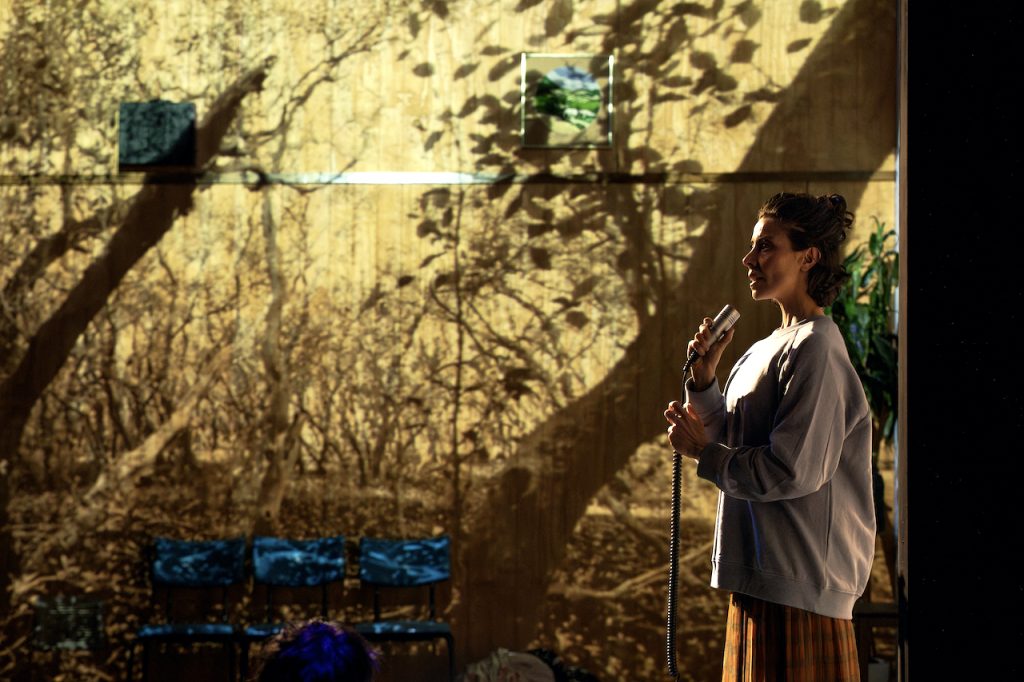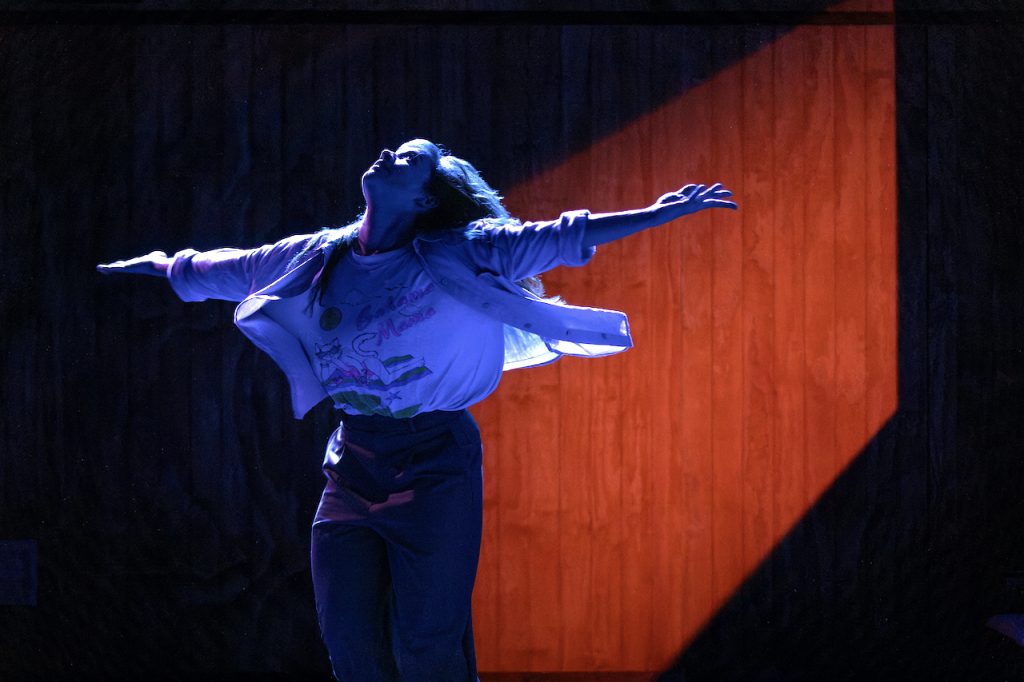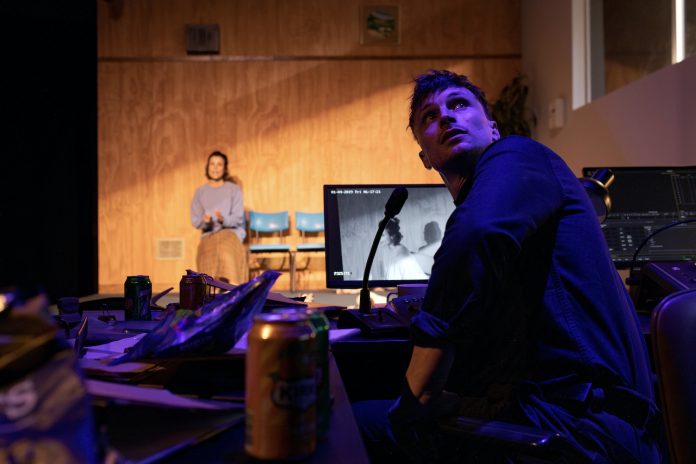Walking into the Seymour Centre’s cosy Reginald Theatre, the audience is immediately transported to an eerie dystopian world.
Low synthesised music hums in the background. An empty waiting room is illuminated on one half of the stage, while high-tech surveillance machines dominate the other half. A collection of TV screens capture real-time footage of the theatre from a variety of angles, and sitting there waiting for the show to begin, I can’t help feeling that I’m being watched.
This constant feeling of being watched is at the centre of Enda Walsh’s dystopic drama, which the acclaimed Irish playwright composed in 2016. Arlington follows Isla (Phaedra Nicolaidis), a young woman forcibly detained in a state-controlled tower since childhood. In this brutal totalitarian regime, her only connection to the outside world is the naive surveillance man (Jack Angwin) on the other side of the wall. Through the power of memory and storytelling, the two develop an intense connection that transcends the isolating forces of their bleak world.
The clever set design (Kate Beere) that splits the stage in half is appropriately disorientating, communicating the sense of fragmentation experienced by Walsh’s characters. The sterile waiting room space demands Nicolaidis to hold the audience’s interest through her voice and movement alone. This interest is effectively sustained in the play’s first act, where Isla and the surveillance man engage in a long conversation about childhood memories and their hopes for the future.

In one particularly poignant moment, Isla recounts a memory of being in the forest on a sunny day. Here, Walsh’s dialogue is prose-like, peppered with poetic images about the natural world that are at times stunning. In these more poetic sections, the use of projected video art (Aron Murray) and a whimsical orchestral accompaniment (Steve Toulmin) heighten the beauty of Walsh’s language.
Yet, the engagement these poetic moments generate begins to dwindle in the play’s second act, an extended movement piece performed and choreographed by Georgina Symes. Her repeated sequence of movements powerfully communicate the experience of claustrophobia that comes from constant surveillance.
But continuing for almost 30 minutes without dialogue and with limited sound, the movement piece is ultimately overly drawn-out. It certainly leaves the audience with a sense of nihilistic desperation but this message would have been equally powerful had it been delivered in a shorter, more concentrated performance where the play’s narrative flow would have been better maintained.

With strong echoes of Orwell’s 1984, given its focus on Big Brother-like surveillance, the play often relies too heavily on dystopian cliches. Its final section leaves us with more questions than answers.
What has happened to create this totalitarian world? Who controls the towers and for whom? How did Isla become trapped in that waiting room? Audience members waiting for the puzzle pieces to click into place would have left disappointed. Walsh refuses to resolve these questions, instead giving us creative space to come up with our own answers.
The play ends with Isla and the surveillance man meeting in-person for the first time. The lights fade as they take each other’s hands, representing how genuine human connection is the answer to alienation in our increasingly technological world. But, if this is the play’s overarching message, is it really saying anything new?
Arlington is playing now at the Seymour Centre until August 24.


